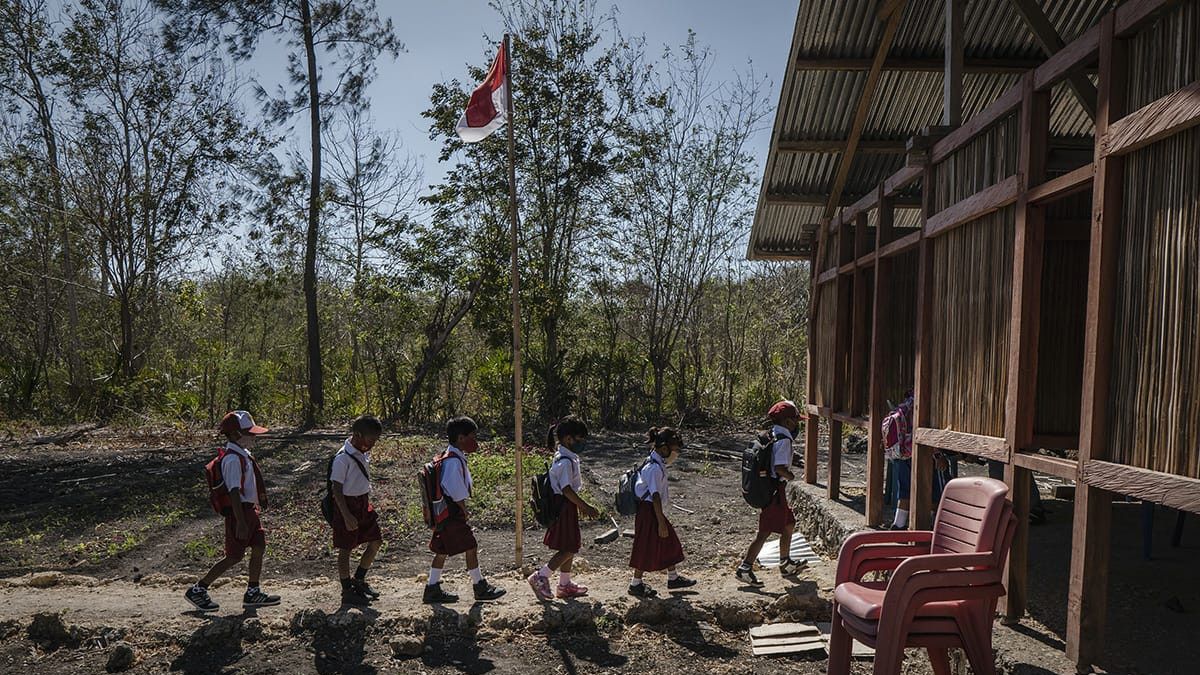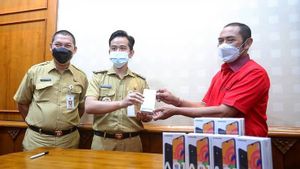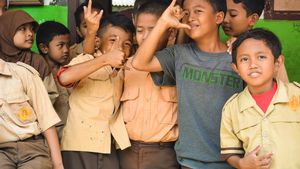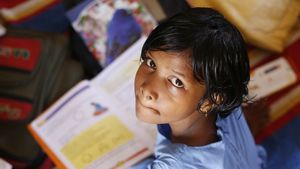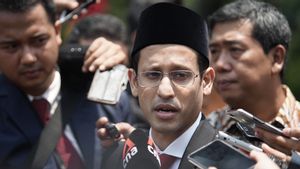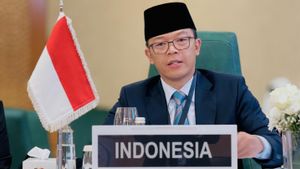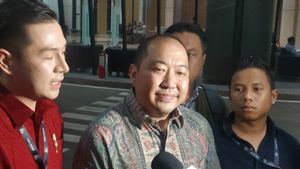JAKARTA - One year, the COVID-19 pandemic has hit and has an impact on Indonesia on a large scale and adds a new layer of risk to the fulfillment of children's rights in Indonesia, and one of them is the right to education.
The spread of the COVID-19 pandemic in Indonesia has made the history of the largest national emergency education, where more than 600 thousand schools have to close, causing around 60 million children to undergo distance learning (PJJ) or learn from home.
Even though there are schools in certain zones that are allowed to open with certain requirements, most children still have to learn from home, both online and offline.
But unfortunately, many children in Indonesia are unable to learn online. This has several implications for education in Indonesia, such as decreased motivation to learn and return to school, decreased literacy and numeracy skills, and threats of dropping out of school because children have to work or marry early.
The disruption of the learning system in Indonesia will create a loss of learning which can then affect the opportunity to access higher education and employment, and generate income in the future.
Save the Children Indonesia CEO, Selina Patta Sumbung, explained that the July 2020 Save The Children Global Study in 46 countries, especially Indonesia, indicates that 8 out of 10 children cannot access adequate learning materials and 4 out of 10 children have difficulty understanding homework.

In fact, the study shows the fact that at least 1 percent of children do not learn anything during distance learning (PJJ).
"2021 should be the year that ensures children continue to have access to quality learning, because education is a child's right that must be fulfilled and is also the key to building the Indonesian generation," he said, in a written statement, Sunday, March 14.
Selina said that implementing distance learning (PJJ) is also not an easy thing, there are several challenges faced by children, teachers, and parents. Such as limited materials, tools, access to learning and teaching, uneven infrastructures such as internet access, roads, and even electricity.
Then, the teacher's skills to do distance learning (PJJ), the capacity of parents to assist children in learning, and the ability of children to adapt and learn independently.
Apart from that, said Selina, the biggest challenge is creating a safe and comfortable learning environment for children. Save the Children Global Study found that two-thirds or 63 percent of girls are assigned more household chores, compared to 43 percent of boys.
Selina said this is also relevant to the admission that 23 percent of parents who care for them are depressed due to the pandemic situation, apart from 1 in 8 parents who stated that there was violence at home. The voice of a child who wants school/madrasah to be opened soon for fear of being married also deserves attention.
Overcoming these challenges, according to Selina, strengthening resilience (adapting and surviving) and innovating in the learning and teaching process in the education sector is needed.
Furthermore, efforts to ensure that children can continue to learn without being restricted to classrooms through a hybrid learning model, namely the combination of face-to-face or offline learning models, independently using computers, or virtually or online, must become a learning model. Given that many schools are in disaster-prone areas apart from the potential for a pandemic to develop as it is today.
Therefore, said Selina, program support is needed to improve the competence of teachers, schools, related agencies, as well as maximize the potential of children and adolescents, parents and families, caregivers, as well as collaboration with communities, development partners, the private sector, industry, and all elements of government.
SEE ALSO:
Stella (15) from East Nusa Tenggara acknowledged the difficulty in joining distance learning (PJJ) as a representative of the Children & Youth Advisory Network (CYAN) of Save the Children Indonesia.
"My friends who live in the village, find it difficult to get a signal. And many of them also don't have cellphones. So sometimes they don't study at all or it's difficult to get information from the teacher even though they really want to learn," said Stella.
Stella said education is very important for children. Because the children will continue the struggle to develop the Indonesian nation.
"Indonesia needs quality children. If children cannot learn, they do not get quality education, Indonesia will not progress," she said.
The English, Chinese, Japanese, Arabic, and French versions are automatically generated by the AI. So there may still be inaccuracies in translating, please always see Indonesian as our main language. (system supported by DigitalSiber.id)
